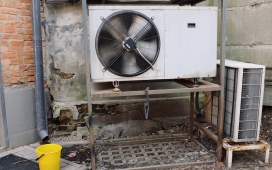Have you ever started a home renovation and found yourself ankle-deep in debris?
wondering how to manage the chaos? Skip bins Melbourne services offer a game-changing solution, streamlining waste disposal while keeping your site safe and tidy. In this guide, we’ll explore how to maximise skip bin efficiency, avoid common hazards, and comply with local regulations, ensuring your renovation stays on track.
Why Use Skip Bins for Home Renovations?
1. Keep Your Site Tidy and Safe
Skip bins act as a centralised waste hub, reducing clutter and trip hazards. By tossing materials directly into the bin, you prevent debris from scattering across your property. This is especially crucial in Melbourne, where council regulations require skips on public roads to have permits and adhere to strict placement guidelines
A well-organised skip also encourages safer workspaces, as walkways remain clear for workers and deliveries.
2. Efficient Waste Disposal and Recycling
Skip hire companies like WM Waste and Asap Bin Hire’s Skip Bins Melbourne handle waste collection and sorting, saving you time and multiple trips to landfills.
Many providers, such as DC Waste Management, prioritise recycling, diverting up to 80% of renovation waste from landfills. This aligns with Melbourne’s sustainability goals and reduces your project’s environmental footprint.
Choosing the Right Skip Bin
1. Selecting the Correct Size
Opt for a bin that matches your project scale:
- Small projects (e.g., bathroom refits): 2–4m³ mini skips.
- Large renovations (e.g., whole-house overhauls): 8–12m³ skips.
Overestimating size is wise—overfilled bins pose safety risks and may incur fines.
Companies like Best Price Skip Bins offer online tools to help you choose the right size.
2. Avoiding Hazards
- Overloading: Keep the waste level below the bin’s rim to prevent spillage during transport.
- Prohibited items: Never include asbestos, chemicals, or batteries—these require specialised disposal.
Weight distribution: Place heavy items (e.g., concrete) at the bottom to stabilise the load.
3. Comparing Local Providers
Melbourne boasts reputable providers like GT Skips and Cleanaway, which offer flexible hire periods and council permit assistance. For example, Asap Bin Hire’s Skip Bins helps navigate the City of Melbourne permit requirements, ensuring compliance
Compare pricing, waste types accepted, and recycling policies to find the best fit.
Planning Your Skip Bin Placement
1. Ideal Locations
- Private property: Driveways or flat garden areas avoid permit needs and keep footpaths clear.
- Public roads: Requires a council permit, which can take 3+ business days to
process.
2. Council Regulations
In Melbourne, skips on roads must:
- Be placed parallel to the kerb within marked parking bays.
- Avoid clearways, bike lanes, and areas near intersections or tram stops. Permit fees start at $97 per day, making private placement a cost-effective option.
3. Maintaining Cleanliness
- Bag loose materials (e.g., plasterboard) to contain dust.
- Avoid food waste to deter pests.
- Use tarps to shield bins from rain, preventing waterlogged debris.
Safety Tips for Skip Bin Hire
1. Protective Gear and Loading
- Wear gloves and steel-cap boots when handling sharp objects.
- Lift with your knees, not your back, and use trolleys for heavy items.
2. Preventing Overlooked Risks
- Vermin: Secure bin lids and avoid organic waste.
- Children and pets: Fence off the skip area or place bins out of reach.
- Visibility: Use reflective tape or cones if placing skips near roads.
Efficient Waste Disposal Practices
1. Segregate for Recycling
Sort metals, timber, and plastics to streamline recycling. Providers like WM Waste offer dedicated bins for green waste and concrete, which are processed into mulch or crushed materials.
2. Maintain a Tidy Site
- Schedule daily clean-ups to avoid debris buildup.
- Sweep around the bin to prevent scattered rubbish.
3. Timely Collections
Coordinate with your provider for regular pickups, especially for long-term projects. This frees space for new materials and keeps workflows smooth.
Top Questions Answered
1. What Can’t Go in a Skip?
Hazardous materials (asbestos, paint, gas cylinders) and e-waste are prohibited. Always confirm with your provider.
2. One Large Skip vs. Multiple Small Bins
A single large skip is cost-effective for big projects, while smaller bins suit segregated waste types. GT Skips advises strategic layering to maximise space.
3. Avoiding Overfills
Break down bulky items (e.g., furniture) and distribute weight evenly. Monitor the fill line and book early collections if needed.
Common Mistakes to Avoid
1. Misjudging Waste Volume: Consult providers like DC Waste Management for size recommendations.
2. Ignoring Permits: Fines for non-compliance can exceed $194 in Melbourne.
3. Poor Loading Practices: Uneven loads risk tipping—follow the “heavy at the
bottom” rule.
Keeping Your Community Safe
- Minimise Noise: Restrict loading to permitted hours (7 am–7 pm weekdays).
- Communicate with Neighbours: Inform them about skip placements to avoid
disputes. - Use Safety Markers: Reflective strips or cones enhance visibility for roadside skips.
Conclusion
Skip bins Melbourne services are indispensable for home renovations, offering a blend of convenience, safety, and eco-friendliness. By selecting the right size, adhering to council rules. you can transform waste management from a headache into a seamless process.
Prioritise safety, stay organised, and watch your renovation vision come to life — rubble-free!






